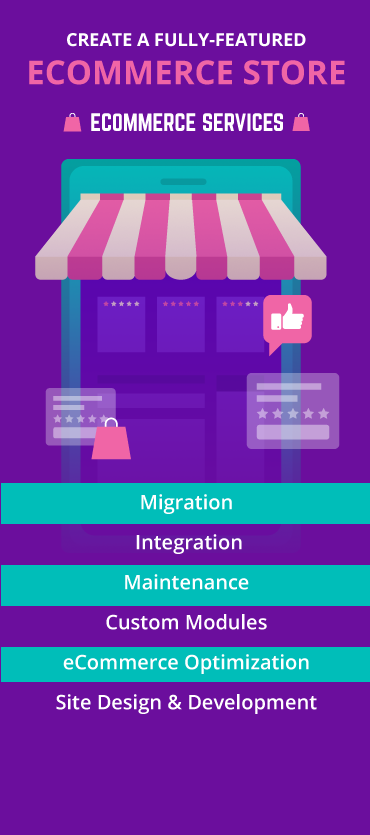Starting up an eCommerce store today is no longer a herculean task. However, with so many options available, there are a lot of decisions that often leave entrepreneurs in a dilemma. One of these is if you should choose a hosted eCommerce platform or a self-hosted one.
In this blog post, we will take a look at the two types of platforms and compare them on some key factors to help you make a decision.
But before we dive into which one you should go for, let’s understand each of these in brief.
Hosted eCommerce platforms
Hosted eCommerce solutions offer a complete solution in a single package. This often includes shopping cart functionalities, hosting, and the required technical support.

While hosted eCommerce platforms are available for a monthly license fee, you can get a good discount if you pay for a few months in advance. Remember, the fee is flexible depending on the features that you need for your store.
In a nutshell, hosted platforms offer complete technical support and premium customization facilities including themes and plugins.
Here are a few popular hosted eCommerce platforms:
- BigCommerce
- Shopify
- Netsuite
- Wix
- Shopify Plus
Self-hosted eCommerce platforms
Self-hosted eCommerce platforms let you access the original source code freely. You can simply view, customize, and contribute to it. It is highly customizable when it comes to the functionality or design of your store.
Here are some of the most popular names:
- Magento
- PrestaShop
- WooCommerce
- OpenCart
With different functionalities available on each platform, it is a challenge to figure out which one to choose for your business. Let’s understand this by comparing both.
Hosted vs. open-source eCommerce Solution
The total cost of the store development
The first thing that you need to pay attention to when starting an eCommerce store is your budget. If you are planning to start it at a low cost, then the open-source platform is always the best choice as it is free.
In fact, its maintenance cost also fits in your budget since it is simple for eCommerce developers to make adjustments.
However, if budget is not a constraint, you can opt for a hosted platform by simply paying a monthly license fee. The main benefit here is that you don’t need to be worried about its maintenance as your package covers all of it.
Website functionality
Before you start building an eCommerce store, decide on the unique needs and the customer experience you want to create.
If your business needs some extensive functionalities and several distinctive features, open-source platforms can work really well for your business.
On the other hand, if you do not wish to have many exclusive but only basic features, a hosted solution can do really well for your business. Since source code is not available in case of hosted platforms you cannot play around with your store freely. However, you can still use paid extensions.
Technical support and expertise
When you choose an open-source eCommerce platform make sure you opt for a technology you are an expert in. These platforms have a huge community of technical people and detailed documents to help you in case of any trouble. In this case, you always have the choice to find the solution on your own or hire an eCommerce developer.
However, with a hosted eCommerce platform, there is no need for external help or any documentation as it already includes technical support. There is a technical team at the back of the platform to help you wherever required.
Key takeaway
Given the fact that eCommerce is already over a trillion dollar industry and is growing rapidly, starting an eCommerce business is quite profitable, more so now.
With more than 500 eCommerce platforms to choose from, store owners have the choice to either choose open-source or hosted platforms depending on their business requirements.
However, remember that choosing the perfect platform for your online store is the first step to make your store a roaring success.
Need help with eCommerce Development? Contact us!











